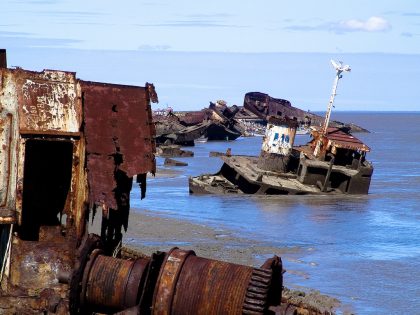
We’re actually being exploited once again
Mozambique should not move forward with extractivist mega-projects. They always contribute to serious violations of human rights, cause irreversible damage to the environment, and deepen the climate crisis.

Mozambique should not move forward with extractivist mega-projects. They always contribute to serious violations of human rights, cause irreversible damage to the environment, and deepen the climate crisis.

A new and different state is necessary to manage the complex problems in the region, but is it possible under the current regime that has fed the conflict?

Local biodiversity loss and degradation of resources will have the greatest effect on communities in regions of biofuel expansion.

The painter Cassi Namoda situates herself squarely in the artistic history of Mozambique, especially its rich tradition of anticolonial photography, as she turns outwards to the world.

The dynamics of refuge-seeking in southern Mozambique between 1895 and the 1980s.

How colonial Portugal, to project the idea of a multi-continental and multiracial country, initiated a drive to encourage white settlement in Angola and Mozambique.

The climate crisis, resource extraction, and the insurgency by a group claiming affiliation to ISIL in Mozambique’s Cabo Delgado province.

Remembering Marcelino dos Santos, founder of Frelimo and the former Vice President of the People’s Republic of Mozambique.

The celebrated Mozambican writer, Mia Cuoto, argues, among others, that it is essential that governments think in terms of the nation, not its elites.

The film 'The Sound of Masks' explores dance, memory and the meaning of life, ancestry, culture and political struggle in postcolonial Mozambique.

Structural Adjustment Programs, implemented by the World Bank and IMF in developing countries, leave the administrative state especially unequipped to deal with climate change.

The films of Robert Van Lierop and Margaret Dickson chronicled anti-imperial struggles in Mozambique.

Beyond immediate disaster relief, sustainable global responses to climate change require greater and more predictable funding to strengthen the resilience of the planet's most vulnerable regions.

Cyclone Idai exposed a state weakened by an extractivist development model and captured by global capital, exposing ordinary Mozambicans.

Mozambicans feel the death of the former leader of Renamo could put a wrench in the path towards a peaceful, democratic future.

The violence of Mozambique's civil war between 1976 and 1992 is generally silenced. Very little of the war’s history has been written down.

The dominant approach to revitalizing national parks is one-dimensional and sees local residents as obstacles rather than partners.

The IMF’s latest tussle with the government of Mozambique and Voodoo Economics are among our #WeekendSpecials

In what is a victory for media freedom, a Mozambican judge rules it is “perfectly acceptable in a democracy" to criticize your leaders.

On Mozambican TV, South Africa is divided between the people of good will with their pots of rice, and the people of Goodwill with their knobkieries and pangas.